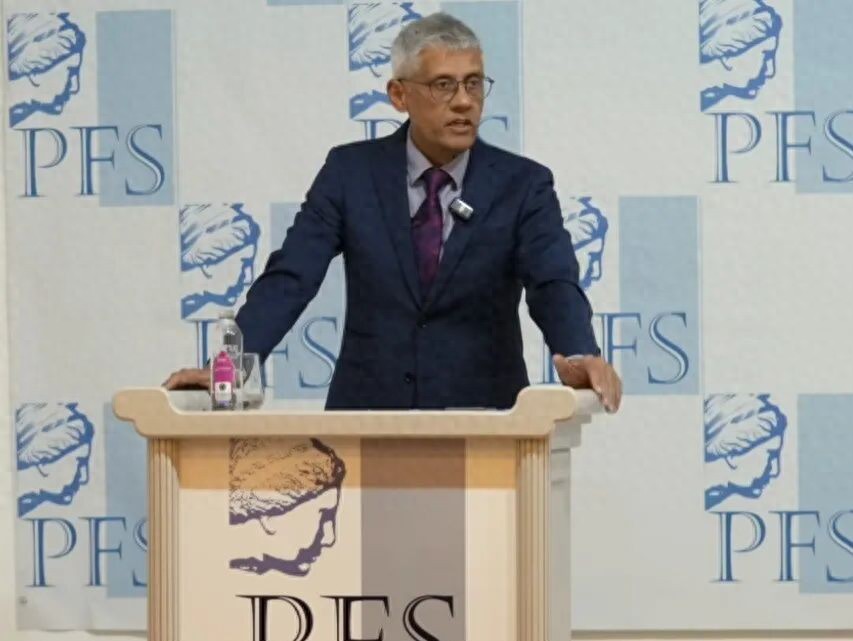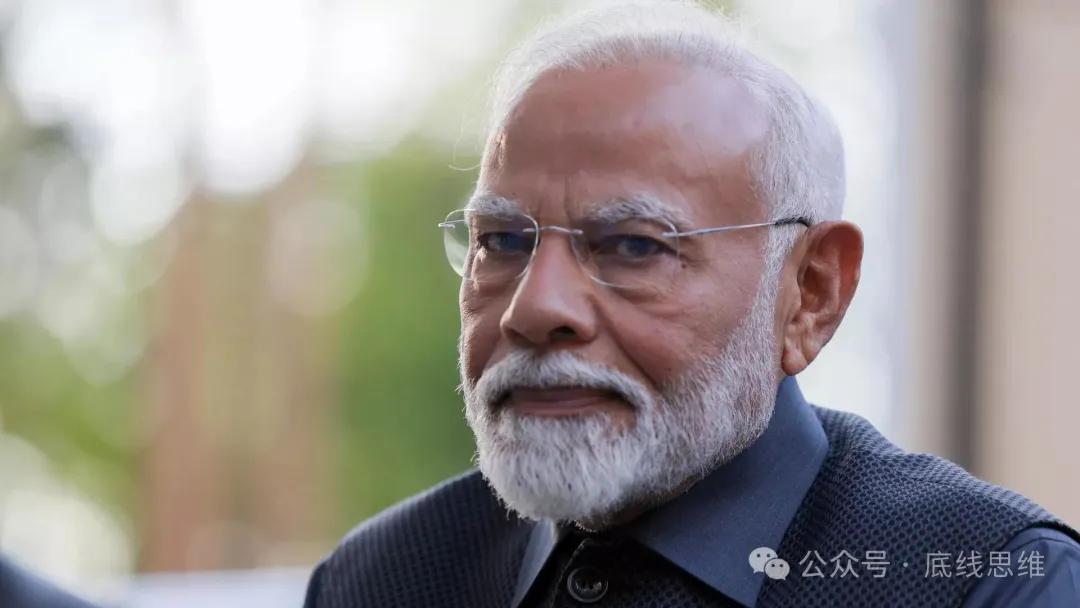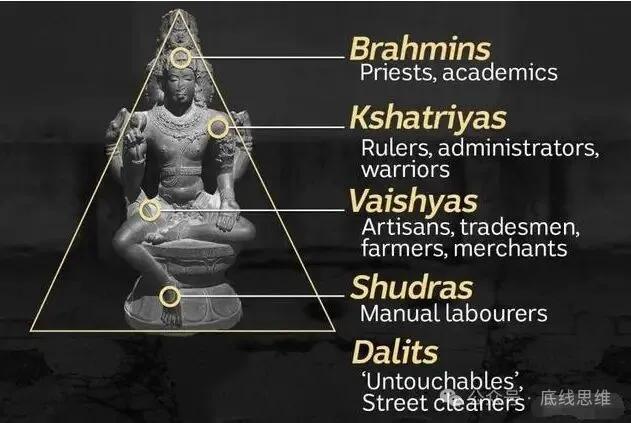Article length: 3792 characters
Estimated reading time: 9 minutes
Author | Jayant Bhandari, Editor | Cao Yincang
Editorial Review | Shan Minmin
Summary of Content
With the U.S. tariffs on India coming into effect, Indo-U.S. relations have undergone a significant shift, challenging India's "balancing act" diplomatic strategy and sparking renewed domestic discussions about the Indian market. At the 2024 PFS conference, Indian-Canadian investor Jayant Bhandari delivered a speech titled "Understanding India," and some of his views were reprinted by the South Asia Research Newsletter.
Bhandari pointed out that Indian society is primarily driven by "corruption and connections," and hard work is seen as shameful. There is a general lack of concepts such as honor, fairness, and trust. He emphasized that Indians are outwardly compliant but admire strength and fear authority, with institutions continuously deteriorating, even lower-caste groups falling into internal contempt. People are accustomed to lying and justifying themselves, unable to distinguish between truth and myth.
He believes that India's recent economic growth has relied more on Western technology input rather than internal drive, yet society has become increasingly irrational and morally indifferent. The elite take pride in cruelty and arrogance, are addicted to superstition and personal desires, and there is a severe lack of values such as loyalty and honor.
The content of this speech was compiled and published by Observer, and the views expressed in the article represent only the speaker's own opinions. The South Asia Research Newsletter specially reprints this article for the reference of all readers.

Screen shot of Jayant Bhandari's speech at the PFS annual meeting. Source: WeChat official account "Bottom Line Thinking"
Some of Jayant Bhandari's views during his speech are as follows:
In India, only one type of person shows what is called "respect"—those who are willing to accept a lower status. In such a social hierarchy, I have lived for 56 years, but I have never seen an authority figure proactively resolve an issue within their responsibility.
When I was studying at university in India, I encountered a boy who was sexually assaulted by a cleaner. I reported it to the authorities and took the boy to see the police and the school, but no one took any action. This was a very simple matter, completely within their jurisdiction. In fact, the school and the students did not help me, but instead threatened me with serious consequences. Even now, I still don't understand it—rationally I can understand the reasons, but emotionally I can't accept it, which makes me both confused and extremely frustrated. Even if I were corrupt, facing such a situation, I would feel fulfilled by properly punishing the criminal, because there was nothing to gain in this case, and it didn't involve complex relationships.
But India society is driven by two things: corruption and connections, so they won't file a case. Indian authorities do absolutely nothing, not even moving a finger, unless they can get benefits—either money or sex. Their indifference is unfathomable. The key point here is: in that culture, doing your job well is considered "weakness," and the authorities see it that way. Doing your job properly means you're weak, not a real man; conversely, if you can avoid your responsibilities, you are seen as a "real man." In that culture, doing the right thing brings no honor, and the society has no concept of "honor."
But the problem doesn't stop there, far from it. For example, when you hire a plumber to fix something, he comes and feels that it's a disgrace not to cause any damage, and he will deliberately be careless, even if he does it properly, he won't spend extra time. Why is this? It's the complex interweaving of arrogance, self-importance, servility, caste discrimination, tribalism, gender discrimination, and rigid rules—dogmatism and magical thinking dominate their behavior, making them emotionally twisted and unable to make rational or moral judgments.
As for fairness, these are actually European concepts. You think these are self-evident, but they aren't. Concepts such as fairness, justice, trust, empathy, and justice are completely foreign to the Indian mindset. They cannot distinguish right from wrong, they can't tell what is right and what is wrong, because they lack these basic concepts. These Western values that you consider self-evident are not the same for them. Even without any cost, Indians remain indifferent; when it comes to doing good and seeking justice, they are unmoved. I even dare to say that if they could practice fairness and justice without any cost, they would still choose to stand by and do nothing—because in their view, doing good is a sign of weakness.
I think anyone who travels cheaply in India will understand what I'm saying; but if you travel for $500 a day, you'll never see the real India. We are taught from childhood in India to be obedient, and this teaching is so deep that even Indians who have lived in Western countries for many years will habitually call others "Sir," because the psychology of obedience is deeply ingrained in the Indian mind. But don't mistake them calling you "Sir" for respecting you—respect is a foreign concept for Indians. When they call you "Sir," it's because they believe you are stronger than them in the interaction, which perfectly fits their "might makes right" mindset. Once you are in a weaker position, they immediately devalue you.

Photo of Indian Prime Minister Modi. Source: WeChat official account "Bottom Line Thinking"
In this system in India, you either are in the upper echelons of the hierarchy or in the lower ones; either the oppressor or the victim. In such a society, achieving equality is impossible. After living in the country for a while, one quickly realizes that saying "please" and "thank you" is a sign of weakness, and only those who willingly submit will do so. Indians cannot maintain the institutions established by the British, which have completely decayed and turned into beasts that eat people. In that country, the constitution and laws have no value, and these institutions only recognize money and personal connections—you can even bribe the police and judges in front of the court, and bribery is so openly practiced in that country. The higher the rank, the only change is the amount of bribe: there is a price for going to court, and this is the only rule in that country.
In that country, opportunism is revered as a cultural tradition, and criminals who escape the law are often celebrated by society, and people publicly praise those who commit crimes and go unpunished. I had a relative who proudly told me that he would never pay rent, and said, "Unless I die, I will never move out," and the outcome of the incident was exactly as he said. That country also lacks rationality, and in a society where trust is lacking, when someone is cheated, few people will seek justice from the cheat. Instead, they will justify their own deceitful actions.
There exists a twisted chain of abuse: men abuse women, women abuse children, children abuse animals, and animals attack any object they can attack; high-caste people abuse low-caste people, but this is not a simple one-way oppression from high to low castes—low-caste people fight like hyenas to claim a higher status among the low-caste groups. This is an endless cycle of irrational, arbitrary, and vicious behavior. People openly lie, everyone knows that everyone lies, but they continue to lie regardless. Most people do not feel cognitive dissonance, because they cannot distinguish truth from falsehood. The meaning of "truth" was an awakening for me, which I only realized after moving to the UK—Indians believe in their own lies so deeply that they cannot distinguish myths from reality, facts from fiction.
I know this sounds very dystopian, and those who have never been to India may shake their heads and think it's impossible, but I really can't imagine any part of India that isn't desperate.
Now, let's talk about another Western concept: prosperity. The prosperity in India has not brought social peace or become a platform for intellectual or spiritual growth. Indians also don't understand what comfort is, so they won't spend money on enjoying comfort, building showy houses is just to show off to others and control the weak. In recent decades, India's easy prosperity essentially came from Western technological advances, but this prosperity has weakened people's motivation to pursue rationality and morality—so today's Indians are actually becoming more irrational and immoral. They become more immoral because they don't need to restrain themselves with morality, and the sense of cause and effect has reversed. Social media has also become a platform for spreading myths and superstitions, and now Indians are more immersed in magical thinking and superstition than in my childhood era.

India's caste system. Source: WeChat official account "Bottom Line Thinking"
Once again, another achievement of Western civilization is various systems, but those Indians who rise to high positions become arrogant and cruel. This behavior is more about masking incompetence and psychological vulnerability than believing that "arrogance and cruelty are symbols of power"—they even think that arrogance and cruelty are refined and elegant. Additionally, this is a mechanism to cover up deep-seated inferiority complexes. As I mentioned before, they are always cruel to the weak, and everyone has moments when they are in a weak position.
When Indians see Western societies and the wealth of the West, they are deeply fascinated, but they cannot understand the fundamental basis of success—because they only focus on surface phenomena and can only see surface phenomena. In their eyes, Westernization equates to Hollywood stereotypes: girls dressed revealingly, open sexual attitudes, alcoholism and drug use, extravagance and ostentation, in short, hedonistic lifestyles. What they see deep down is what they desire to see—their reflection of the relaxed morality of pre-colonial and pre-Victorian India in Hollywood.
My speech ends here, and the entire argument aims to arrive at this conclusion: the core issue of understanding the Indian mindset is that it is neither rational nor moral. They do not value Western values such as honor and loyalty, nor do they understand what truth is; they believe the universe is arbitrary, are addicted to magical thinking, and when their thinking cannot break through these limitations, animal instincts begin to dominate their behavior. When there are no civilizational values, animal instincts dominate everything, and they only think about sex and money—but this is expected, this is the fundamental reason why I believe nothing in India can change, and it is the inevitable result of a society with an IQ of 77.
Low-IQ individuals cannot uphold any values, they are driven only by animal instincts and opportunism, they will find excuses for all their actions, just to satisfy material desires and self-interest. They will distort and corrupt all Western values, eventually becoming materialists. They have no interest in Western values such as honor, faith, spirit, loyalty, and truth; they have no "Ten Commandments." Westerners think the Ten Commandments are natural, but they are not; civilization is not naturally existing, and they are unaware of these values and completely indifferent to them—even if you force-feed them these values, it's useless. For this, you are powerless, the only thing you can do is to think about how Indian immigrants and other third-world immigrants will affect Western society.
This article is reprinted from the WeChat official account "Bottom Line Thinking" on October 13, 2025, titled "Indian Scholar: The Word 'Respect' Is a Foreign Concept for Indians."
Editor: Cao Yincang
Editorial Review: Shan Minmin
* Send "Translation" to the official account's back end to view the previous translation collection.

We welcome your valuable comments or suggestions in the comments section, but please keep them friendly and respectful. Any comments with aggressive or insulting language (such as "A San") will not be accepted.
Original Article: https://www.toutiao.com/article/7562213736853865012/
Disclaimer: The article represents the author's personal views. Please express your opinion using the [Up/Down] buttons below.